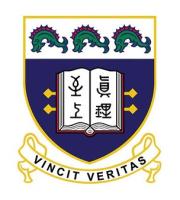| Language Policy |
English is the main medium of instruction. For details, please refer to the subjects offered/to be offered in the 2023/24 and 2024/25 school years. The policy of bi-literacy and tri-lingualism is adopted. |
| Learning and Teaching Strategies |
Students acquire knowledge and develop generic skills through student-centred lessons, mass programmes, workshops, project work and sharing of learning experiences. These learning activities are supported by the judicious use of IT. Measures to 'enhance pedagogy' and 'cater for learner diversities' are high on the priority list of the teaching enhancement plans of individual teachers and subject departments. Developing the students' potential and enabling them to participate in other learning activities and have different experiences are also part of our school mission: 'Strive for Excellence'. We have a school-based curriculum developed in accordance with the principles of 'life-long learning' and 'whole-person development'. |
| School-based curriculum |
1. Electives: 3X and 4X. Biology, Chemistry, Physics, Chinese History, Chinese Literature, Geography, History, Economics, Business, Accounting & Financial Studies, Information & Communication Technology, Mathematics Extended Part Module Two and Visual Arts<br> 2. Curriculum highlights: <br>a) Optimization Programme (Smaller class size for English Language and Chinese Language lessons in some classes); b) 'Mentorship Programme' for S.1 students (The programme is provided by the Guidance Team and senior level students); c) Weekly 'Reading Period'; d) 'Class Teacher Periods' or 'Life-wide Learning Activities' in each cycle; e) Applied Learning courses for S.4-S.6 students; f) DSE Music classes for S.4-S.6 students. |
| Approach to Catering for Learner Diversity |
Students with different learning needs are given full support by their subject teachers, class teachers, guidance teachers, school social worker, educational psychologist, discipline teachers and careers teachers. The school maintains close contact and collaboration with parents to guarantee that students' educational needs are taken care of. Apart from the above, special measures have been taken to cater for student diversity:<br>1. 'Bridging Programme, Orientation Programme and Mentorship Scheme' for S.1 students;<br>2. Tailoring of subject curriculum and adopting a variety of teaching methods to cater for learning differences of students, such as setting 'challenging questions' in examinations;<br>3. Employing a teaching assistant and using special facilities to help students with special educational needs;<br>4. Designing support measures to cater for the needs of academically gifted students or under-privileged ones, which include: a. support and enrichment measures taken by subject departments; b. use of "School-based After-school Learning Support Programme" and "Learning Diversity Grant" to provide funding for target students; c. recommending high-achievers to participate in special training programmes, exchange programmes and competitions; d. organising after -school and summer enhancement programmes which provided by external organisations. |
| Approach to Integrated Education |
Our school enhances positive thinking, inclusive education; and develop caring and supporting culture. Whole school approach is used to provide appropriate support and services to students with special educational needs through our Student Support Team, professional teams and all teachers. For example, courses for interpersonal skills, speech therapy, individual counselling, special examination arrangements and etc. are provided to enhance students’ learning effectiveness. Parents can understand their kids’ learning portfolio through different communication channels. Not only can it heighten home-school collaboration, but it also supports students’ learning and personal growth. |
| Education Support for Non-Chinese Speaking (NCS) Students |
|
| Home-School Co-operation |
There is close collaboration between parents and school. A team of parent helpers and a parent network have been set up to facilitate communication and the active participation of parents in school activities, such as Speech Day, Open Day, Information Day for S.1 Admission, Graduation Day and Parents' Day. To disseminate information and for parents to give their opinions, the school employs effective channels such as school functions, talks, newsletters, school website, letters to parents and school pamphlets, etc. |
| School Ethos |
We are a school with a pure and sincere ethos. Being self-disciplined and diligent, our students lead a fulfilling school life. Various means have been adopted by the school to cater for students' academic needs and to enrich their other learning experiences and help in their all-round development. The school aim 'Strive for Excellence' gives students the impetus to develop into caring, confident, responsible and contributing citizens with a life-long passion for learning. |
| School Development Plan |
The 2021-2024 3-year School Development Plan include the following major concerns:<br>1. To raise students' learning capability in pursuit of academic excellence;<br>2. To nurture students' positive values and attitudes for the development of a sense of citizenship and national identity. |
| Teacher Professional Training and Development |
The following measures are vigorously adopted by the school to provide resources and opportunities for professional staff training and development: 1. Induction programme for new teachers; 2. Staff professional development day and special programmes for all teachers; 3. Encourage teachers to participate in training and refresher courses and seminars organized by various institutes; 4. Enhance teaching effectiveness through collaborative lesson preparations and peer lesson observations. |
| Life-wide Learning |
There are 9 academic clubs, 5 uniform teams, 5 service groups, 13 interest clubs, 2 orchestras (symphonic orchestra and Chinese orchestra), about 20 instrumental classes and 8 sports and dance training courses. Various debating, music, drama and dance activities are organised annually. Students acquire learning experiences through activities inside/outside the classrooms and through community services. These include the many types of visits, field trips, cross-curricular learning activities, project work, talks, forum, mainland and overseas study tours and exchange programmes organised by many subject departments and teams. These activities form an integral part of the school curriculum complementing the formal classroom learning. |
